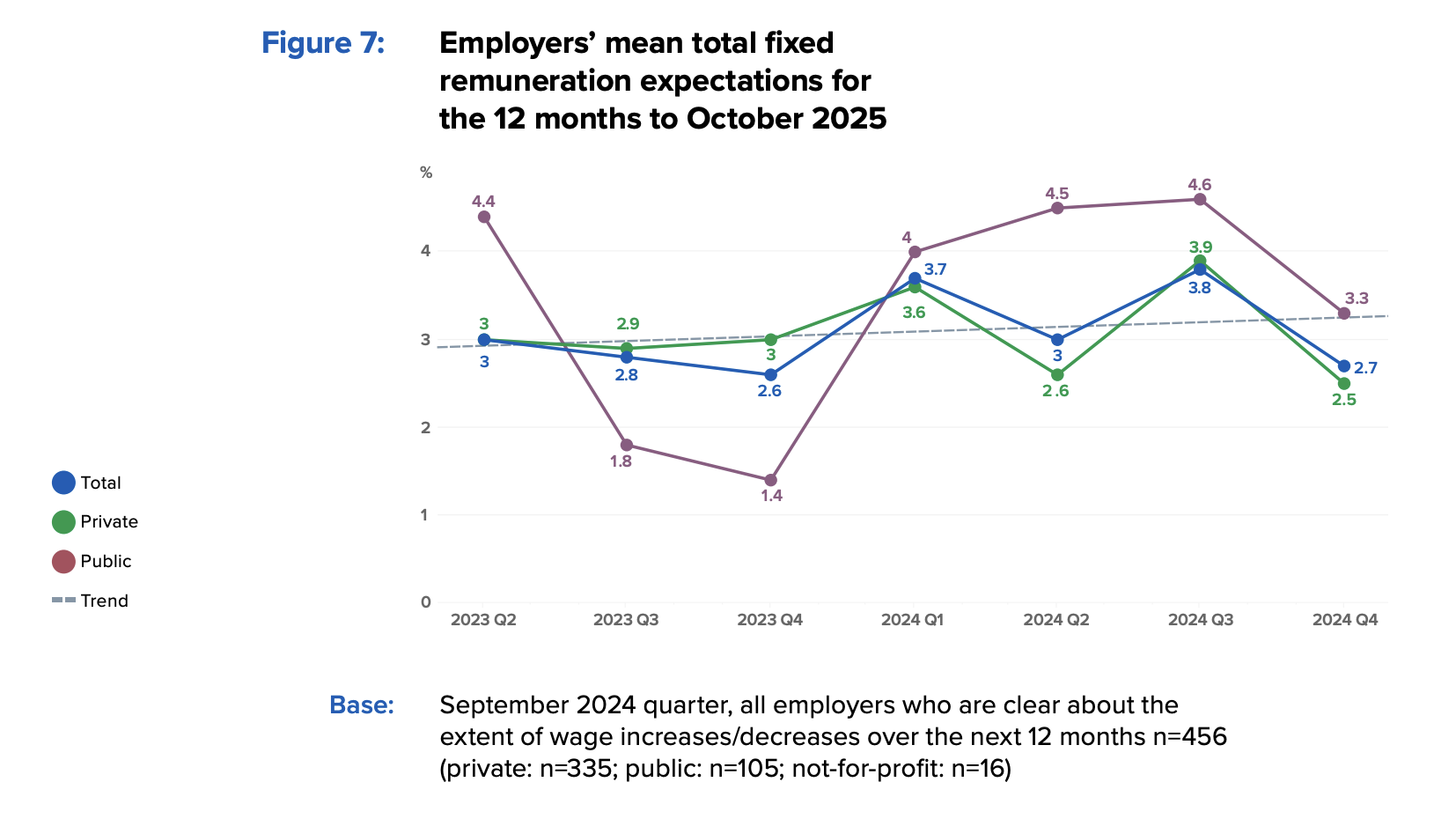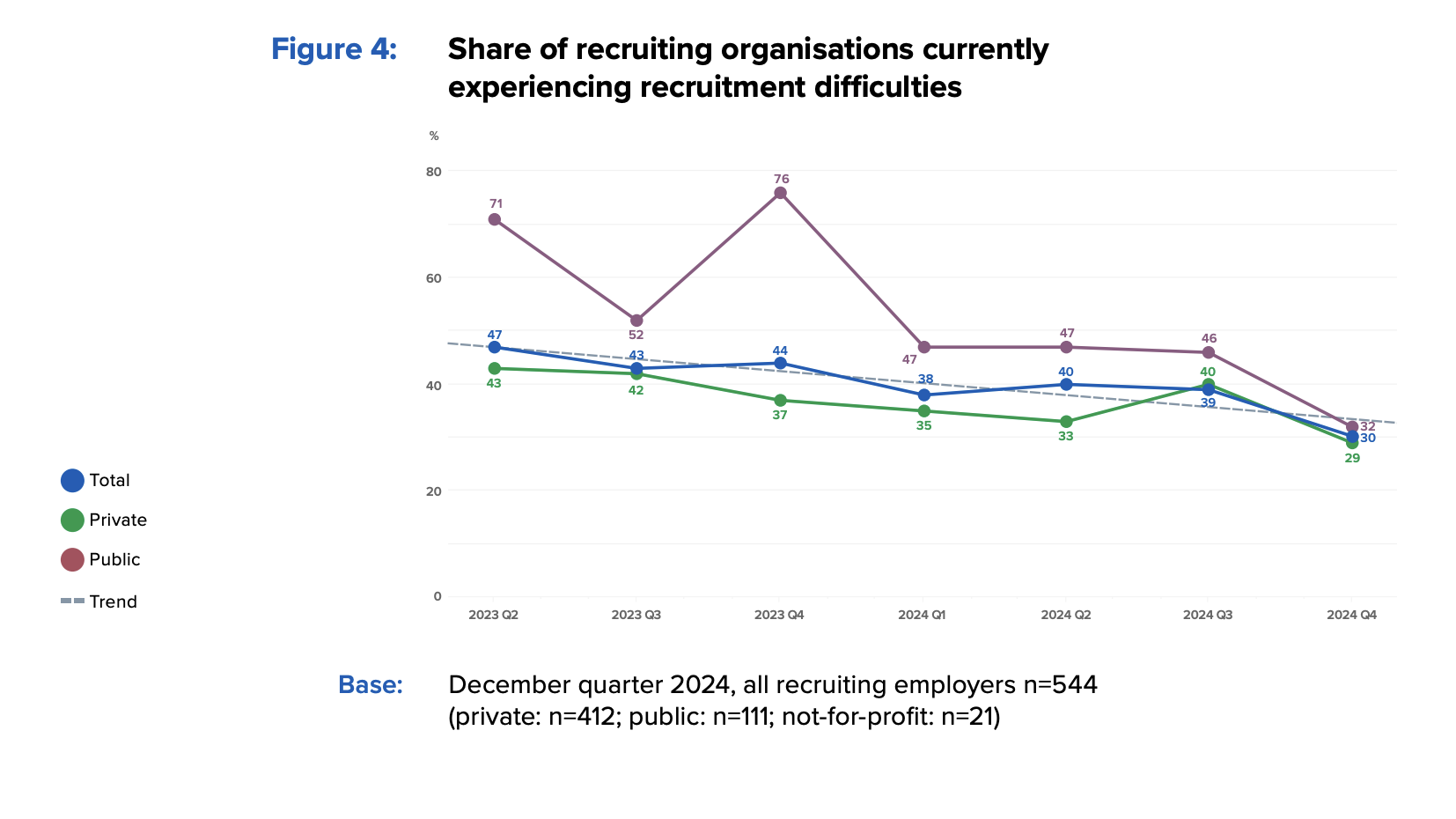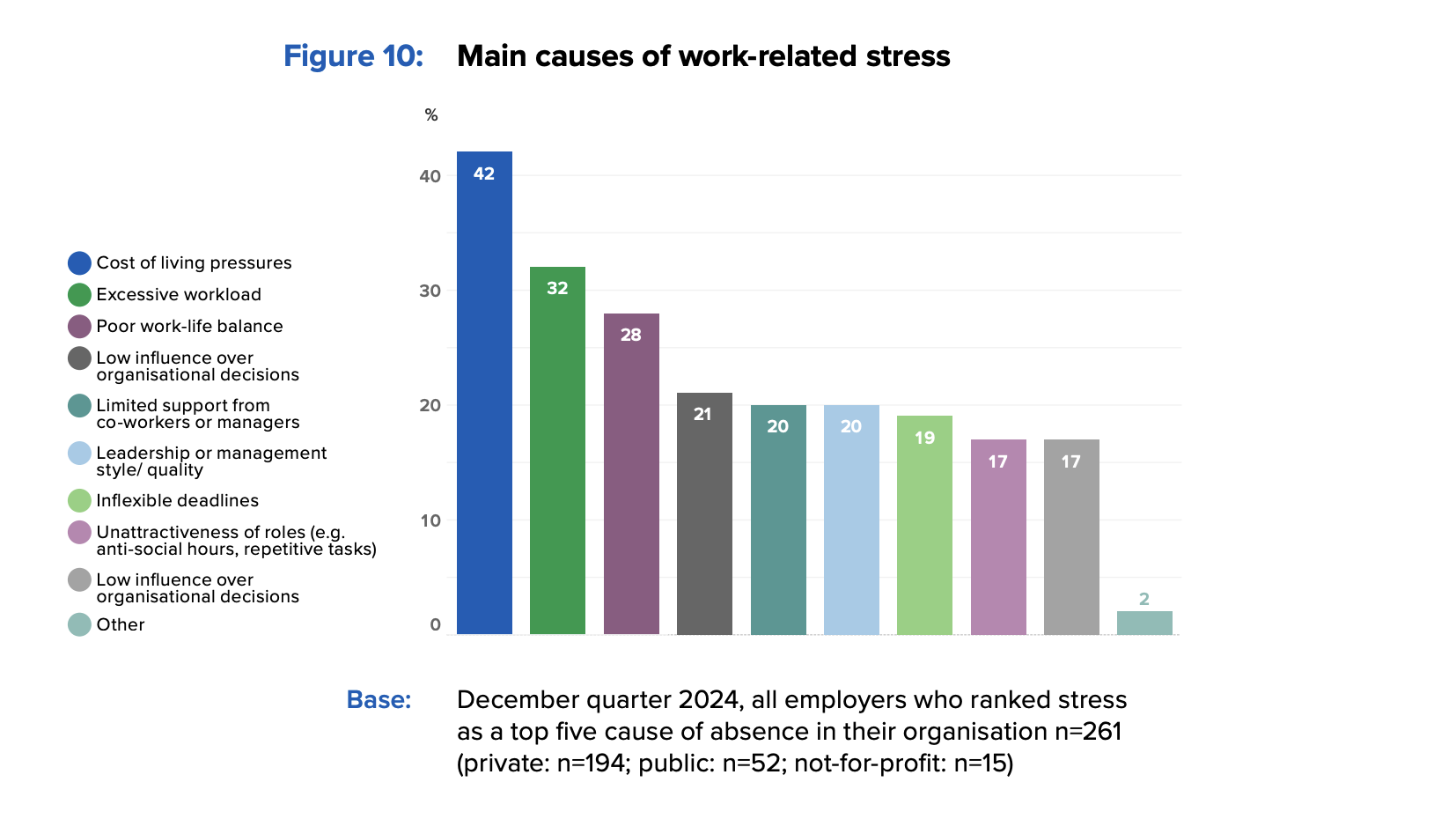
Pay growth expectations fall below CPI inflation rate, AHRI report finds

Pay growth expectations for the next 12 months have fallen to their lowest point this year, according to the Australian HR Institute (AHRI), signalling a shift in the labour market.
The latest AHRI Quarterly Work Outlook report, released for the December quarter, shows that the mean basic pay increase for Australian organisations is expected to be just 2.7% for the year leading up to October 2025.
This is a significant drop from the 3.8% increase projected for the year leading up to July 2025.
It also falls below the Consumer Price Index (CPI) inflation rate, which was 2.8% in the 12 months to September 2024.
Source: Australian HR Institute
Sarah McCann-Bartlett, CEO of AHRI, emphasised that this decline in pay growth expectations further supports the notion that the rapid wage increases seen in recent years may have peaked.
"This may help ease concerns around the gap between low productivity and relatively strong wage growth, which has been of concern to both employers and policymakers," McCann-Bartlett said in a statement.
A key factor behind the slowing wage growth appears to be a reduction in recruitment difficulties, according to the report, which gathered insights from over 600 senior HR professionals and decision-makers across Australia.
The proportion of organisations reporting challenges in hiring has decreased significantly, from 39% in the September quarter to 30% in the December quarter.
Source: Australian HR Institute
But the emerging challenge for HR practitioners and line managers now is how to retain engagement among employees following the lack of inflation-matching pay increases.
This challenge comes as cost-of-living pressures (42%) emerge as the biggest driver of stress among employees.
Source: Australian HR Institute
"These challenges could be compounded among the many organisations that are reorganising their workplaces for future challenges including digitisation, automation, and AI," McCann-Bartlett said.